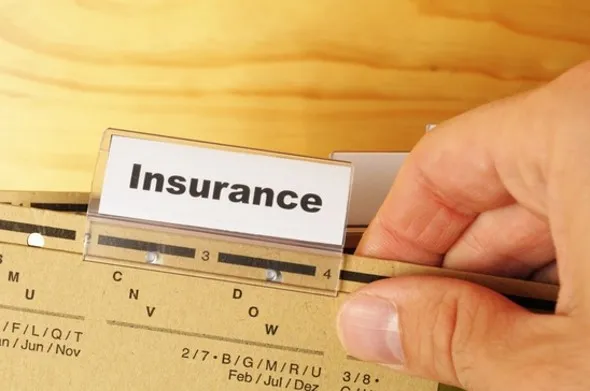Flexibility and freedom are just two of the advantages that go along with being your own boss. Taking the plunge into being self-employed can be financially rewarding but if you don’t have a sizable bankroll of cash sitting around, you may need to cut corners until you start seeing a profit. While it’s important to keep your overhead down, one thing you can’t afford to skimp on is insurance. If you’re planning to start your own business or launch a freelance career, here are five important types of insurance you’ll need.
1. Health Insurance
One of the biggest downsides associated with leaving the 9 to 5 behind is losing your employer’s health insurance coverage. If you’re used to having your monthly premiums deducted from your paycheck, having to buy your own policy can be a real eye-opener. Finding affordable coverage means knowing what your options area.
The National Association for the Self-Employed offers a variety of resources for entrepreneurs and small business owners, including information on health insurance. The Freelancer’s Union offers several insurance options directly to members as well as a 401(k) plan and discounts on business services. It may take some time to do the research but shopping around first can help you snag the best rate.
2. Disability Insurance
If you get hurt or become seriously ill it can put a serious crimp in your cash flow when you’re not able to run your business. Disability insurance can help keep you afloat financially until you’re back on your feet again. Typically, this kind of coverage is designed to replace around 60 percent of your income so you’ll want to have a sizable emergency fund in place as well.
Buying a disability policy directly from an insurance company can be tricky, since many insurers only offer limited benefits to the self-employed. You may find it easier to get coverage through a local professional organization or association if they offer a group policy.
3. Business Insurance
Business insurance refers to a broad range of insurance types that are designed to fill the gaps in your existing coverage. For instance, if you work from home you may want to buy a home-based business policy, which would cover losses that don’t fall under your regular homeowners’ insurance. This may include things like damage to your business property or theft.
If you run a small business with employees, you may want to look for a comprehensive policy that combines property and liability coverage. This type of policy protects the business structure itself and any business-related equipment against theft or damage. You’ll also be covered if an employee or someone else is injured on the business premises.
4. Liability Insurance
Liability insurance is designed to protect you personally against negligence claims. There are several types of liability insurance you may want to invest in, depending on the type of business you own.
Product liability insurance, for example, insures you against claims resulting from injuries or damages caused by your business’s product. If you’re worried about other types of claims, you may want to opt for a general policy, which provides umbrella protection against lawsuits stemming from negligence or personal injury claims.
5. Life Insurance
Even if you’re relatively young it’s important to have some kind of life insurance in place, especially if you have a family. If you’re planning to borrow money to get your business off the ground, the bank may require you to purchase life insurance first to cover any potential losses in the event of your death.
When buying life insurance, you’ll have to decide whether you want a whole life or term policy. Term life is less expensive but it’s only designed to be effective for a certain period of time. Permanent life insurance will cost you more but covers you for life and allows you to build some cash value in the policy.
Making sure you have the right kinds of insurance in place before you set out on the self-employed path can save you money and stress in the long run. Squeezing coverage into your start-up budget can be tough but it pays to be safe rather than sorry.
Update: Have more financial questions? SmartAsset can help. So many people reached out to us looking for tax and long-term financial planning help, we started our own matching service to help you find a financial advisor. The SmartAdvisor matching tool can help you find a person to work with to meet your needs. First you’ll answer a series of questions about your situation and goals. Then the program will narrow down your options from thousands of advisors to three fiduciaries who suit your needs. You can then read their profiles to learn more about them, interview them on the phone or in person and choose who to work with in the future. This allows you to find a good fit while the program does much of the hard work for you.
Photo Credit: flickr
